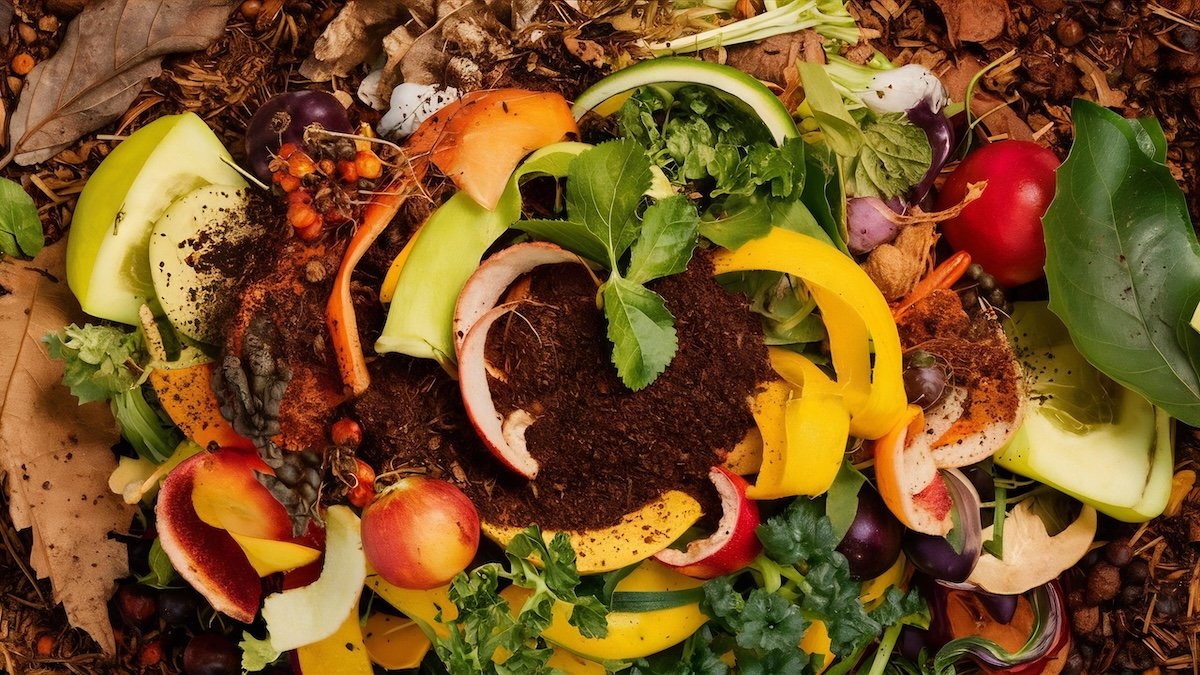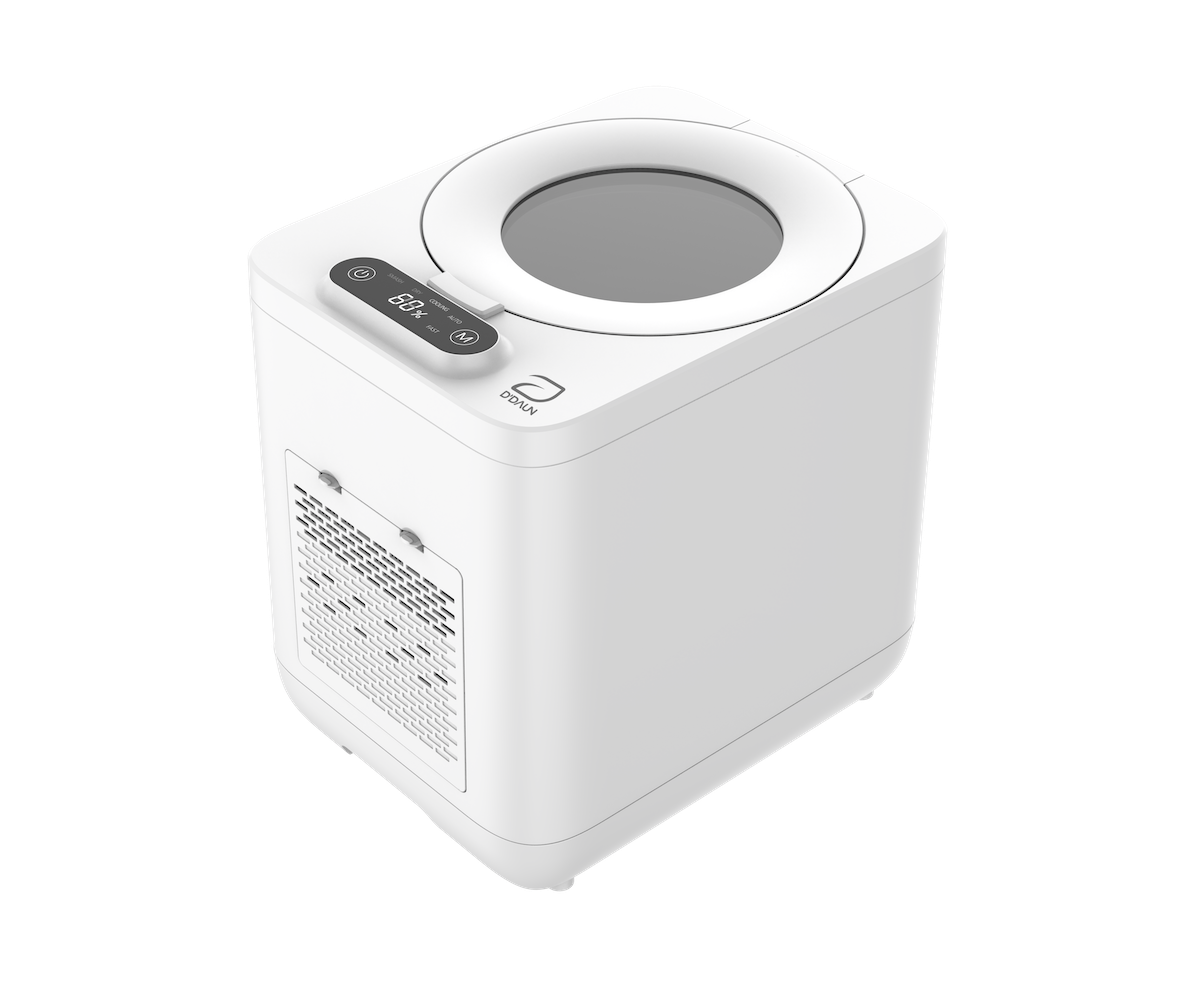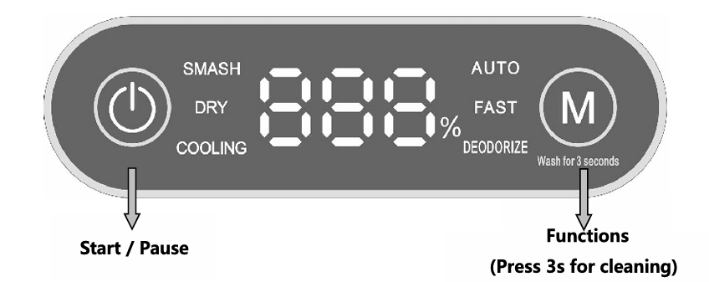


- What can be composted

Fruits & Vegetables

Fish or shellfish

Poultry

Meat

Bread, Rice, Pastries, Flour, Pasta, Noodles

Diary products

Eggs
- What cannot be composted

Cooking Oil

Packaging Boxes

Large Bones

Oyster & Scallop shells
Features
DESIGNED TO FULFILL ALL EXPECTATIONS


3 easy modes
Auto
Fast
Deodorize
Large capacity
Reduces food waste up to 90%
Non Stick coating drum
Powerful grinder
Odorless Operation
Silent
Energy Saving
Specification
TECHNOLOGY FOR GREENER TOMORROW

Recover Valuable Materials
Compost is the single most important ingredient for healthy and fertile soil.
Reduce Pests
Food waste in garbage bins is more likely to attract pests compared to putting food waste in composters.
Reduce Pesticides
Compost naturally suppresses plant diseases, reducing the need to use pesticides on plants.
Save Money
You can turn organic waste into a valuable soil enhancer.
Healthy Garden
Compost provides essential nutrients back to the earth to nourish seeds and plants.
Eliminate Smell
Reduce the unwanted smells caused by food waste in rubbish bins.
Environmentally Responsible
Composting is the most responsible form of Food Waste Management. Food waste sent to landfills produces methane gas, which increases carbon emissions.
Eco-Pioneer
Become an eco-pioneer and help save our planet.
FAQ
Customer support & Information
What can I put into the machine?
Anything a human can consume, raw or cooked, can be placed into the machine
What I cannot put into the machine?
Anything that is not organic – for example, plastic, glass, metal products. Putting these items into the machine can lead to machine damage and malfunction.
Can the output be used immediately?
The output can be used immediately. However, a further curing period ranging from 2 to 4 weeks is recommended.
What is the difference between using a food waste composting machine and traditional composting?
- Speed:
- Food Waste Composting Machine: These machines accelerate the composting process by providing controlled conditions such as heat, moisture, and aeration. The composting cycle can takes less than 24 hours.
- Traditional Composting: Traditional composting, typically done in outdoor compost bins or piles, can take several months or even a year for food waste to fully decompose, depending on factors like temperature, moisture, and the materials used.
- Convenience:
- Food Waste Composting Machine: It is a more convenient option for urban or small-space living because it’s usually compact and easy to use. The machine does most of the work, and the process is automated.
- Traditional Composting: Requires more manual effort, such as turning the compost, monitoring moisture, and sometimes even managing pests. It is best suited for outdoor spaces with enough room for larger compost bins or piles.
- Space Requirements:
- Food Waste Composting Machine: These machines are designed to fit in smaller spaces, such as kitchens or balconies.
- Traditional Composting: Requires a larger outdoor space where you can create a compost pile or set up a bin.
- Odor Control:
- Food Waste Composting Machine: Typically has odor control features to prevent smell, as the process is often sealed and controlled.
- Traditional Composting: Without proper management, traditional composting can produce odors, especially if there is too much moisture or food waste that isn’t broken down properly.
- Type of Waste:
- Food Waste Composting Machine: Generally designed to handle only food waste, such as fruits, vegetables, and other biodegradable kitchen scraps.
- Traditional Composting: Can compost a wider variety of organic materials, including yard waste (leaves, grass clippings), paper, and some types of animal manure.
What is the warranty period of the machine?
1 year.
How can I claim the RM2500 tax rebate for households?
Keep the purchase receipt and apply for a tax rebate under column C15 when submitting your tax return next year.
https://www.hasil.gov.my/media/qrulhwku/tp1-2025-en.pdf
How often do we need to change the activated carbon?
DDaun-01 : Every 2 years or depending on frequency of use.


